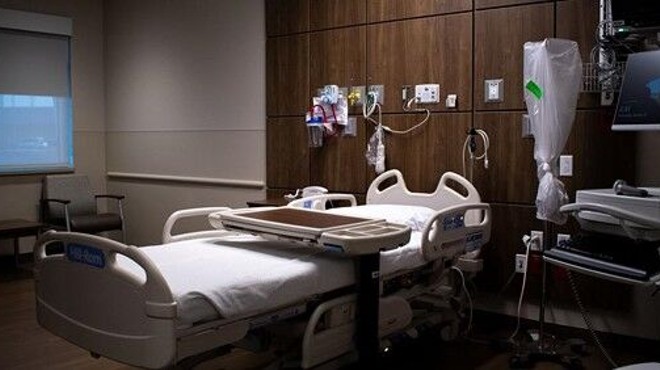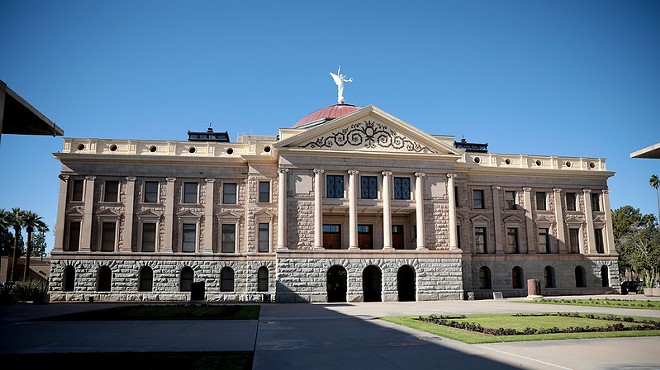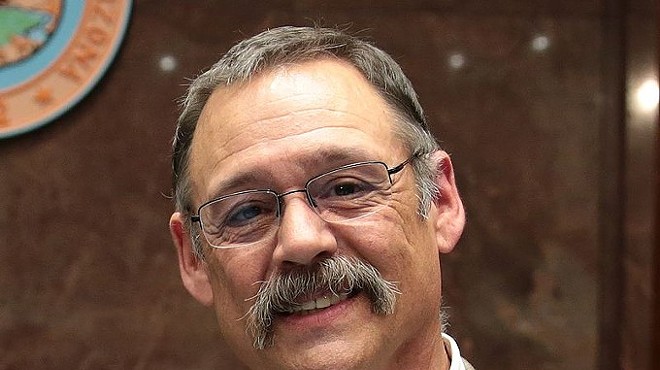Friday, September 18, 2015
About Ahmed Mohamed's Not-a-Bomb Clock and the School/Police Reaction
Ahmed Mohamed made national and probably international news when the 14 year old brought a homemade clock to his Dallas high school which some people thought might be a bomb, and when they realized it wasn't, accused him of bringing a prank bomb to school. He was detained, questioned without being allowed to talk with his parents and handcuffed. As a former high school English teacher, I've been running through the scenario in my head, thinking about what I might have done if I had been involved and how the school should have responded to the situation. I'm using the details as they were described in a NY Times article.
I'm reasonably certain that Ahmed's dark skin and Muslim faith caused a heightened reaction from the school and the police, that this situation would have been handled better if he were white, but let's neutralize that issue for the moment. This was a student in my class, his name was Ahmed or Andy, he was black or white, Muslim, Christian or nonreligious.
So. Ahmed/Andy is a student in my English class. I hear something beeping in his backpack. I ask to see what it is. This nice, shy, somewhat nerdy kid reaches into his backpack and pulls out a metal briefcase with a clock face on the front. What do I do?
The first thing that happens inside me, I'm guessing, is I experience an electric shock of panic in my chest. I think, "Oh shit, that looks like the kind of bomb I've seen in a dozen spy/terrorist movies!" What do I do? My first reaction is to protect the safety and welfare of my students and other students at the school. Whatever temporary problems I create for Ahmed/Andy are secondary, I'll worry about that later. This may be a bomb, and this seemingly nice kid may be one of those people who does some terrible thing, after which everyone says, "He was such a nice kid, I never would have suspected he would have done something like this."
My best reaction, I think, would have been to tell Ahmed/Andy to pick up his belongings and come into the hall with me, away from the other students. Then I would say, "Tell me what that device is." If he answered, "It's a clock I brought to school to show to my engineering teacher," my next best reaction would be to say we'd better take it to the office, where I would explain the situation to an administrator. When I felt comfortable the administrator understood and had things in hand, I would return to my class. If I was feeling especially panicky and feared it might be a bomb that could go off at any moment, I'd take him outside with me. We would set all Ahmed/Andy's belongings some distance away from the school, then we could move back toward the school so we would be out of potential danger. At that point, I would somehow alert an administrator or one of the campus cops to help with the situation. (Would I have reacted this calmly if I were actually in this situation? I honestly have no idea.)
Now that the potential threat is away from the school, the situation changes. My responsibility is no longer to the students in my class or in the school. It's to Ahmed/Andy's welfare. Assuming this isn't a bomb, assuming this kid did nothing wrong, he's been through a frightening experience through no fault of his own. I should do whatever I can to lessen the negative impact of his being suspected of doing something as horrible as bringing a bomb to school. "Look," I might say, "Your clock scared the crap out of me. I saw that box and I imagined what might happen if it were a bomb. Why did you bring a thing like that to school?" If he repeated the story about bringing it to show to his engineering teacher, I might smile and say, "Yeah, Mr. Stephens [or whatever his name is], did he like it?" Maybe talk a little about Mr. Stephen's class to move us emotionally out of the present situation. Then I might say, "I hope you know, what I just did, pulling you out of class, that wasn't about you, it was about the concern I felt seeing that box. I would have done the same thing with any student. That's my duty, to do everything I can to keep my students safe. I can't tell you how relieved I feel right now knowing I was worried about nothing." I might ask, "How are you doing? Are you OK?" to gauge his mental state.
Once it's determined this was nothing but a homemade clock (which they must have decided quickly, because the bomb squad wasn't called), the well-being of Ahmed/Andy should become the school's primary focus. As much as possible, this should be a school-based action, not a police action. If it's determined that this kid brought the clock to school as a prank, some appropriate disciplinary action should be taken. It's distantly possible, I suppose, that this was a trial run for sneaking a bomb into the school. Both of those possibilities should be considered. But the higher probability is that this was exactly what Ahmed/Andy said, that he brought the clock to impress his engineering teacher. If someone in the administration went down and talked to the teacher and confirmed the student's story, that would pretty much have put an end to the situation. But that's not what happened, and that's where this situation went astray.
A high school student, especially one who has never done anything wrong, shouldn't be questioned for an extended period of time by the police and not allowed to call his parents. The parents should have been called as soon as any possibility of danger had passed, and the student should have been tended by an adult until they arrived. He should not have been handcuffed or treated like a potential criminal. This is one of those instances where having police at schools criminalizes behavior that would have been far better dealt with by the school staff. The police should have played a secondary role unless more active involvement was considered necessary.
(It's possible, I guess, that someone thought time was of essence, that they couldn't wait for the parents to arrive because Ahmed/Andy may have planted bombs around the school. If so, the way to deal with that wouldn't be to continue questioning him for an hour. You ask the question twice in 30 seconds. If you get a no and are still concerned, you evacuate the school and call in the bomb squad to search the place.)
Removing the student from the classroom, neutralizing the danger and then using the least coercive way of talking with the student: that would have been the best way to handle the situation. The parents were right to be upset with the way their child was treated. The school and the police reacted badly, but I put more of the blame on the school, which should have taken control of the situation and protected the student from unnecessary emotional distress. If race and religion entered into the equation, that makes the school and police reaction far worse.
I'm reasonably certain that Ahmed's dark skin and Muslim faith caused a heightened reaction from the school and the police, that this situation would have been handled better if he were white, but let's neutralize that issue for the moment. This was a student in my class, his name was Ahmed or Andy, he was black or white, Muslim, Christian or nonreligious.
So. Ahmed/Andy is a student in my English class. I hear something beeping in his backpack. I ask to see what it is. This nice, shy, somewhat nerdy kid reaches into his backpack and pulls out a metal briefcase with a clock face on the front. What do I do?
The first thing that happens inside me, I'm guessing, is I experience an electric shock of panic in my chest. I think, "Oh shit, that looks like the kind of bomb I've seen in a dozen spy/terrorist movies!" What do I do? My first reaction is to protect the safety and welfare of my students and other students at the school. Whatever temporary problems I create for Ahmed/Andy are secondary, I'll worry about that later. This may be a bomb, and this seemingly nice kid may be one of those people who does some terrible thing, after which everyone says, "He was such a nice kid, I never would have suspected he would have done something like this."
My best reaction, I think, would have been to tell Ahmed/Andy to pick up his belongings and come into the hall with me, away from the other students. Then I would say, "Tell me what that device is." If he answered, "It's a clock I brought to school to show to my engineering teacher," my next best reaction would be to say we'd better take it to the office, where I would explain the situation to an administrator. When I felt comfortable the administrator understood and had things in hand, I would return to my class. If I was feeling especially panicky and feared it might be a bomb that could go off at any moment, I'd take him outside with me. We would set all Ahmed/Andy's belongings some distance away from the school, then we could move back toward the school so we would be out of potential danger. At that point, I would somehow alert an administrator or one of the campus cops to help with the situation. (Would I have reacted this calmly if I were actually in this situation? I honestly have no idea.)
Now that the potential threat is away from the school, the situation changes. My responsibility is no longer to the students in my class or in the school. It's to Ahmed/Andy's welfare. Assuming this isn't a bomb, assuming this kid did nothing wrong, he's been through a frightening experience through no fault of his own. I should do whatever I can to lessen the negative impact of his being suspected of doing something as horrible as bringing a bomb to school. "Look," I might say, "Your clock scared the crap out of me. I saw that box and I imagined what might happen if it were a bomb. Why did you bring a thing like that to school?" If he repeated the story about bringing it to show to his engineering teacher, I might smile and say, "Yeah, Mr. Stephens [or whatever his name is], did he like it?" Maybe talk a little about Mr. Stephen's class to move us emotionally out of the present situation. Then I might say, "I hope you know, what I just did, pulling you out of class, that wasn't about you, it was about the concern I felt seeing that box. I would have done the same thing with any student. That's my duty, to do everything I can to keep my students safe. I can't tell you how relieved I feel right now knowing I was worried about nothing." I might ask, "How are you doing? Are you OK?" to gauge his mental state.
Once it's determined this was nothing but a homemade clock (which they must have decided quickly, because the bomb squad wasn't called), the well-being of Ahmed/Andy should become the school's primary focus. As much as possible, this should be a school-based action, not a police action. If it's determined that this kid brought the clock to school as a prank, some appropriate disciplinary action should be taken. It's distantly possible, I suppose, that this was a trial run for sneaking a bomb into the school. Both of those possibilities should be considered. But the higher probability is that this was exactly what Ahmed/Andy said, that he brought the clock to impress his engineering teacher. If someone in the administration went down and talked to the teacher and confirmed the student's story, that would pretty much have put an end to the situation. But that's not what happened, and that's where this situation went astray.
A high school student, especially one who has never done anything wrong, shouldn't be questioned for an extended period of time by the police and not allowed to call his parents. The parents should have been called as soon as any possibility of danger had passed, and the student should have been tended by an adult until they arrived. He should not have been handcuffed or treated like a potential criminal. This is one of those instances where having police at schools criminalizes behavior that would have been far better dealt with by the school staff. The police should have played a secondary role unless more active involvement was considered necessary.
(It's possible, I guess, that someone thought time was of essence, that they couldn't wait for the parents to arrive because Ahmed/Andy may have planted bombs around the school. If so, the way to deal with that wouldn't be to continue questioning him for an hour. You ask the question twice in 30 seconds. If you get a no and are still concerned, you evacuate the school and call in the bomb squad to search the place.)
Removing the student from the classroom, neutralizing the danger and then using the least coercive way of talking with the student: that would have been the best way to handle the situation. The parents were right to be upset with the way their child was treated. The school and the police reacted badly, but I put more of the blame on the school, which should have taken control of the situation and protected the student from unnecessary emotional distress. If race and religion entered into the equation, that makes the school and police reaction far worse.
Tags: Ahmed Mohamed , Home made clock , Dallas , Bomb threat











